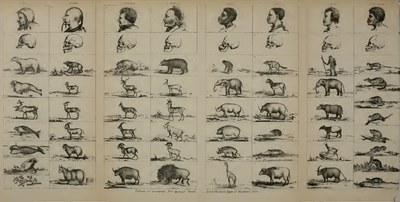
Late nineteenth-century medical theory, particularly the newly minted science of tropical medicine, understood the European body as subject to change if exposed to improper climatic conditions. The white body, whether displaced in the tropics or exposed to the contaminating environmental influence of the industrial city, was thought to be particularly susceptible to devolution in the face of climatic stress. Would the European race be overrun if such a large part of it were to descend into a congenitally subhuman evolutionary state? This talk traces the evolution of this environmental narrative and the transfer of medical rhetoric between colonial authorities in the tropics and fin-de-siècle urban reformers in the industrial cities of Europe and America.
Jake Boswell is an assistant professor of landscape architecture at Ohio State's Knowlton School. Jake’s work traces the effect of social and scientific imaginaries on the production of designed and vernacular landscapes, forwarding speculative environmental futures that stem from historical and contemporary discourses around medicine, climate, and the body. His writing and creative scholarship have been published and displayed nationally and internationally.